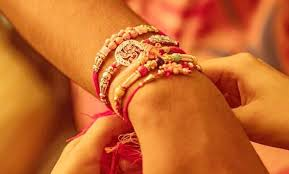
Table of Contents
The Significance of Raksha Bandhan
Raksha Bandhan, commonly known as Rakhi, is a vibrant and cherished festival in India, symbolizing the protective bond between brothers and sisters. During this festival, sisters tie a sacred thread (rakhi) around their brothers’ wrists, praying for their well-being, while brothers pledge to protect and support their sisters. It is a day of celebration, affection, and the reaffirmation of familial ties. This year’s Rakhi, however, became a poignant reminder of the festival’s deeper significance when an act of selflessness led to life-saving surgery.
A Life-Changing Diagnosis
The story begins with a woman, whose name has been withheld for privacy, who had been grappling with severe health issues related to her kidneys. For several years, she suffered from end-stage renal disease (ESRD), a condition where the kidneys no longer function properly, making regular dialysis sessions a grim part of her life. Despite her best efforts to manage the condition through medication and dialysis, her quality of life was severely diminished, and her prognosis was bleak.
Her deteriorating health took a toll on her emotional well-being and that of her family. The constant need for dialysis and the limitations imposed by her condition left her feeling isolated and anxious about her future. Her doctors had indicated that a kidney transplant was the only viable option to restore her health and provide her with a chance at a normal life.
The Brother’s Decision
In this challenging time, her younger brother, who had always been supportive and devoted, stepped forward with an extraordinary gesture of love and sacrifice. Despite his own busy life and responsibilities, he underwent extensive medical evaluations to determine his suitability as a donor.
The process of becoming an organ donor is rigorous, involving thorough health screenings, psychological assessments, and compatibility tests to ensure that the donation is both safe for the donor and beneficial for the recipient. The younger brother’s decision to donate was not made lightly. It involved a deep consideration of the risks and the impact on his own health, but his commitment to his sister’s well-being was unwavering.
The Procedure and the Outcome
After weeks of preparation and medical examinations, the transplantation surgery was scheduled. On Raksha Bandhan, a day filled with personal significance, the operation took place. The timing of the surgery was symbolic, reflecting the profound bond and commitment between siblings that the festival celebrates. The brother’s donation was not just a medical procedure but a testament to the deep familial love and responsibility that Raksha Bandhan embodies.
The surgery, performed at a well-regarded hospital in Goa, was successful. The medical team, led by experienced surgeons and supported by a dedicated group of healthcare professionals, ensured that both the donor and the recipient were carefully monitored throughout the process. The kidney was successfully transplanted, and the recipient’s body began to accept the new organ, showing promising signs of recovery.
Recovery and Renewal
The days following the surgery were filled with hope and optimism. The recipient’s health improved significantly, and she was soon able to resume many of the activities she had once been forced to abandon. Her physical recovery was complemented by a profound emotional renewal. The successful transplant brought with it not just a new kidney but also a renewed outlook on life.
Her younger brother, while recovering from the donation, experienced a sense of profound satisfaction and fulfillment. Knowing that his sacrifice had made a tangible difference in his sister’s life provided him with a deep sense of purpose and pride. His act of selflessness had transformed not just his sister’s health but also the entire family’s outlook on life and the power of giving.
A Broader Impact
This story of donation and recovery resonates beyond the immediate family, highlighting several key themes relevant to the broader community:
- The Power of Family Support: The brother’s decision underscores the profound impact that family support can have on individuals facing health crises. It exemplifies the lengths to which loved ones will go to ensure the well-being of family members.
- Awareness of Organ Donation: The story brings attention to the importance of organ donation and the positive outcomes it can bring. It serves as a reminder of the critical need for organ donors and the life-saving potential of such donations.
- Celebrating Life: Raksha Bandhan, a festival of protection and love, took on a deeper meaning this year for the family. The festival’s traditional themes of caring and commitment were vividly illustrated through the brother’s life-saving gift.
Community and Medical Support
In addition to family support, the successful outcome of this story was made possible by the dedicated efforts of the medical professionals involved. The expertise of the surgical team, the precision of the medical procedures, and the support of the hospital staff all played crucial roles in the success of the transplant. Their contributions highlight the importance of medical advancements and the commitment of healthcare professionals to patient care.
Conclusion
The story of the woman in Goa and her younger brother’s kidney donation is a powerful testament to the strength of familial bonds and the profound impact of selfless acts of love. On a festival meant to celebrate protection and care, the brother’s gesture not only saved a life but also enriched the meaning of Raksha Bandhan for the entire family. It serves as an inspiring reminder of the incredible power of family, the importance of organ donation, and the capacity for love and sacrifice to transform lives.
Rakhi Rakhi RakhiRakhi Rakhi Rakhi Rakhi Rakhi









